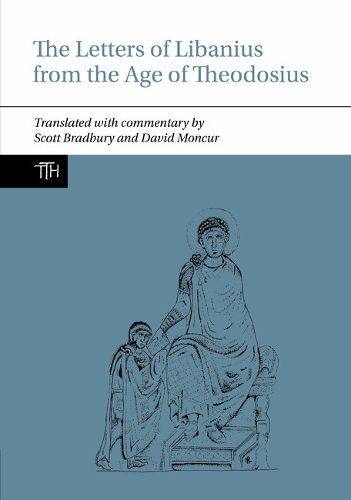Readings Newsletter
Become a Readings Member to make your shopping experience even easier.
Sign in or sign up for free!
You’re not far away from qualifying for FREE standard shipping within Australia
You’ve qualified for FREE standard shipping within Australia
The cart is loading…






Libanius of Antioch (AD 314-93), teacher, rhetorician and eloquent exponent of Greek paideia, was one of the most prolific letter writers of late antiquity with more than 1500 surviving letters from an even greater total. This volume contains the first English-language translation of all the letters written between 388 and 393, which provide insights both into his professional and personal circumstances and the changes taking place in the political, religious and social environment of the late fourth century. The letters while fulfilling many of the usual functions of late antique correspondence as vehicles in creating or maintaining friendship networks, promoting relationships with men in power, supporting rhetoric and Hellenic learning and seeking favours for friends, students and proteges, also reveal Libanius' reaction to his circumstances at the end of his life - his waning influence as a teacher, the hostility directed towards him by factions in Antioch and in Constantinople, the loss of friends and loved ones, in particular his son, and his ill health and impending mortality.
$9.00 standard shipping within Australia
FREE standard shipping within Australia for orders over $100.00
Express & International shipping calculated at checkout
Libanius of Antioch (AD 314-93), teacher, rhetorician and eloquent exponent of Greek paideia, was one of the most prolific letter writers of late antiquity with more than 1500 surviving letters from an even greater total. This volume contains the first English-language translation of all the letters written between 388 and 393, which provide insights both into his professional and personal circumstances and the changes taking place in the political, religious and social environment of the late fourth century. The letters while fulfilling many of the usual functions of late antique correspondence as vehicles in creating or maintaining friendship networks, promoting relationships with men in power, supporting rhetoric and Hellenic learning and seeking favours for friends, students and proteges, also reveal Libanius' reaction to his circumstances at the end of his life - his waning influence as a teacher, the hostility directed towards him by factions in Antioch and in Constantinople, the loss of friends and loved ones, in particular his son, and his ill health and impending mortality.